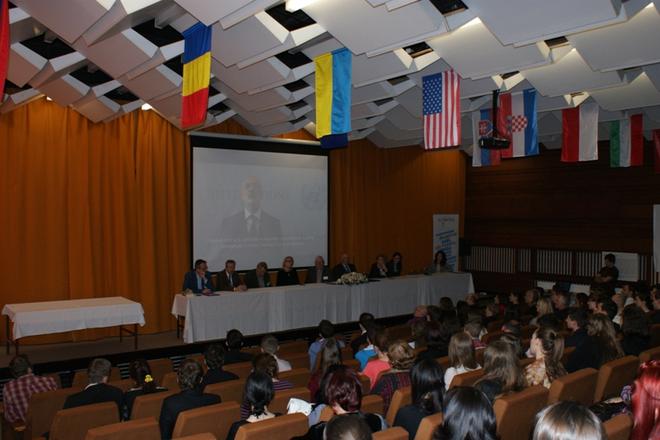A CHILDREN’S euthanasia bill passing in Belgium, Gay Pride and pro-life marches, Russia’s annexation of Crimea: this is just a brief list of issues that secondary school students had to grapple with at the Human Rights Olympics (OĽP) vol. 16, which took place in Modra – Harmónia on March 26-28.
“Each year I am above all pleased that the participants are aware that it is not just about the competition, but learning, understanding and recognising the importance of human rights,” Dagmar Horná, the head of OĽP National Commission, told The Slovak Spectator.
OĽP is the most highly recognised national competition for secondary school students aimed at promoting and educating about human rights issues. Around 4,500 students from 830 secondary schools participate every year. The competition is promulgated by Education Ministry while OĽP National Commission and UNESCO Chair for Human Rights Education at Comenius University serve as it guarantors.
Participants had to pass three levels of national rounds where they presented their knowledge, opinions and attitudes about human rights. They had to deal with model cases and defend their essays, and the top 12 best performers met to discuss randomly chosen human rights topics without any preparation, according to the OĽP press release.
All issues were related to current public issues and events around the world. Perhaps the most interesting topic for students was hate crime, as 26 of 63 students who qualified for the national round of the Olympics chose to write about it in their essays.
Participants defended their ideas before professionals from the Education Ministry, the Foreign Affairs Ministry, the Slovak Information Office of the European Parliament, the United Nations Information Service in Vienna and the Office of the United Nations High Commissioner for Refugees, according to press release.



 Human Rights Olympics opening ceremony. (source: Courtesy of OĽP National Commission)
Human Rights Olympics opening ceremony. (source: Courtesy of OĽP National Commission)